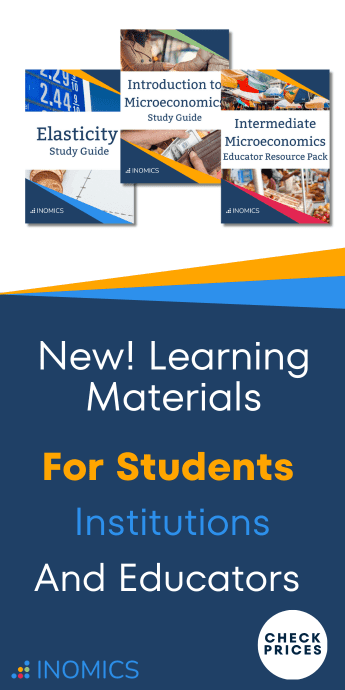
Top 10 Summer Schools in Math & Stats 2015
Read a summary or generate practice questions using the INOMICS AI tool
Now we're over the hump of winter and looking ahead to sunnier days, the time has come to start considering academic activities for the summer break. Summer schools run by top universities give you the chance to attend lectures and courses conducted by top researchers in your field, to practise skills in small groups or seminars, and to get to know students from other institutions. As well as social activities and the opportunity for travel, you can benefit from making new professional contacts, hearing about the latest research, and building your CV.
Before we've shown you the best summer schools in various disciplines such as: Top Economics Summer Schools, Top Business Summer Schools, Top Public Health Summer Schools, Top Engineering Summer Schools, Top Environment & Sustainability Summer Schools, Top Political Science & International Relations Summer Schools,Top Psychology & Behavioral Sciences Summer Schools, Top Computer Science & Software Development Summer Schools, Top Finance & Accounting Summer Schools, Top Communication & Design Summer Schools, Top Law Summer Schools, and Top Education Summer Schools.
Today we're sharing the best summer schools to be offered in the fields of Maths and Statistics:
Cambridge Immerse Mathematics Programme
Country: United Kingdom
Duration of the Course: Aug 9, 2015 to Aug 21, 2015
Application Deadline: -
Cambridge Immerse is a unique two week residential educational experience with a diverse and enriching curriculum. Tutorials and seminars are taught by highly regarded tutors in an optimal learning environment that stimulates academic enquiry; yet the carefully planned schedule ensures that the programme not only meets the academic needs of the participants, but also provides a unique insight into the university city through an abundance of extracurricular activities. The Cambridge Immerse Mathematics course is perfect for those considering studying Mathematics at university level. As well as consolidating students’ existing understanding of core mathematical topics, the course introduces students to more advanced topics and areas of study.
Harvard Mathematics Summer Course
Country: United States
Duration of the Course: Jun 5, 2015 to Jul 24, 2015
Application Deadline: May 18, 2015
More than 300 courses are taught by Harvard professors and visiting scholars during the day, evening, and online. The course in Mathematics will cover such topics as: Precalculus Mathematics, Mathematical Models and Expressions, Multivariable Calculus, Linear Algebra and Differential Equations, Spaces, Mappings, and Mathematical Structures (With An Introduction to Proof), Math for Teaching Number Theory, Graph Theory: Investigating the Mathematical Process, Groups and Symmetry, Vectors: a Tool for Teaching Algebra, Geometry, and Trigonometry, and Teaching Projects: Math for Teaching Capstone Course.
Oxford Mathematics Summer Course
Country: United Kingdom
Duration of the Course: Jul 27, 2015 to Aug 22, 2015
Application Deadline: -
The Oxford Institutes specialises in summer courses for the students at High School in a number of academic fields. We offer two weeks standard as well as four weeks advanced courses. Students can choose to study two subjects during 2 weeks and upto four subjects during 4 weeks summer programme. The specific subject areas include also Mathematics.
CRM-PIMS Summer School in Probability
Country: Canada
Duration of the Course: Jun 15, 2015 to Jul 11, 2015
Application Deadline: -
The 2015 CRM-PIMS Summer School in Probability will take place in Montreal, Canada, from June 15-July 11, 2015. The school is built around two principal 24-hour lecture courses, which will be delivered by Alice Guionnet (random matrices, free probability and the enumeration of maps) and Remco van der Hofstad (high-dimensional percolation and random graphs). There will additionally be mini-courses by Louigi Addario-Berry (random minimum spanning trees), Shankar Bhamidi (dynamic random network models) and Jonathan Mattingly (stabilization by noise). Some time is reserved for participants to present their own work.
Country: United Kingdom
Duration of the Course: Jul 6, 2015 to Jul 11, 2015
Application Deadline: Jul 3, 2015
2015 Stata Summer School comprises a series of four 1-day courses and one 2-day course running consecutively between 6-11 July 2015 at Cass Business School, London, UK. All courses will be delivered interactively using the internationally used software package Stata. This is a great opportunity for students, academics and professionals to expand their econometrics skills and learn how they can apply econometrics and statistics from professionals pioneering research at the forefront of their specialist fields.
Utrecht Summer School - Survey Research: Statistical Analysis and Estimation
Country: Netherlands
Duration of the Course: Aug 24, 2015 to Aug 28, 2015
Application Deadline: Aug 10, 2015
The course is based on a total survey error perspective and discusses the major sources of survey error. Participants will be presented with tools for detection and adjustment of such errors. Analysis methods are introduced using both SPSS and R. Topics include complex sampling, nonresponse adjustment, measurement error, analysis of incomplete data and advanced use of administrative data. Special attention will be given to the analysis of complex surveys that include weighting, stratification and design effects.
Cornell University - STSCI 2100 Introductory Statistics
Country: United States
Duration of the Course: May 27, 2015 to Jun 19, 2015
Application Deadline: -
Statistics is about understanding the world through data. We are surrounded by data, so there is a lot to understand. Covers data exploration and display, data gathering methods, probability, and statistical inference methods through contingency tables and linear regression. The emphasis is on thinking scientifically, understanding what is commonly done with data (and doing some of it for yourself), and laying a foundation for further study. Students learn to use statistical software and simulation tools to discover fundamental results. They use computers regularly; the test includes both multimedia materials and a software package. This course does not focus on data from any particular discipline, but will use real-world examples from a wide variety of disciplines and current events.
Advanced Statistics and Data Mining Summer School
Country: Spain
Duration of the Course: Jun 29, 2015 to Jul 10, 2015
Application Deadline: -
This summer school is organized by the Artificial Intelligence Department of the School of Computer Science of the Univ. Politécnica de Madrid. It comprises intensive courses which aim to provide attendees with an introduction to both the theoretical foundations and the practical applications of some of the modern statistical analysis techniques currently in use. The summer school comprises 12 week-long courses, 15 lecture hours each, given during two weeks (six courses per week). Each course has theoretical as well as practical classes, in which each technique is put into practice with a computer program. Students are free to choose the courses according to their interests, i.e., no restrictions, besides those imposed by timetables, apply on the number or choice of courses.
Country: Germany
Duration of the Course: Jun 29, 2015 to Jul 10, 2015
Application Deadline: -
The aim of the summer school is to introduce contemporary methods from discrete and computational convex geometry to a broad audience ranging from graduate students to postdocs and junior faculty. The central theme is the computation with (non)linear convex bodies by way of structural insights. The courses will be supplemented with problem sessions and guest lectures.
Country: Germany
Duration of the Course: Aug 13, 2016 to Aug 20, 2016
Application Deadline: -
CERME is a Congress designed to foster a communicative spirit. It deliberately and distinctively moves away from research presentations by individuals towards collaborative group work. Its main feature is a number of thematic groups whose members will work together in a common research area. Researchers wishing to present a paper at the Congress should submit the paper to one of these groups. In addition to the Thematic Groups, there will be plenary sessions with opportunity to debate and to communicate the work of each group to other participants; poster sessions for new researchers, and others, to communicate their work and gain feedback; and policy and purpose sessions to negotiate the work and directions of ERME.
-
- Conference
- Posted 1 month ago
CALL FOR PAPERS - 17TH YOUNG ECONOMISTS' SEMINAR
Between 13 Jun and 15 Jun in Dubrovnik, Croatia -
- MBA Program
- (Online)
- Posted 3 years ago
Master of Business Administration (International)
Starts 1 Jul at University of Tasmania in Hobart, Australia -
- Conference
- Posted 2 weeks ago
CEBRA-BoL-NBP Fifth Biennial Conference “Macroeconomic adjustments after large global shocks”
Between 19 Sep and 20 Sep in Vilnius, Lithuania











